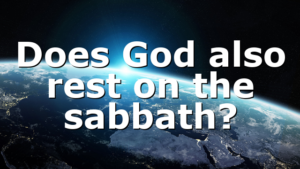
Obedience forms the core of the Christian faith. We, first of all, surrender our very identities to shoulder crosses and follow Christ. Day by day we push away what it is we think we need for what it is God gives. Beyond that, we submit to pastoral oversight and the mutual surrender of being one body with many members in the church. (It’s a messy process, but that comes with the whole swallowing your pride thing.)
It goes further still. We’re told to pray for and submit to earthly, secular, non-God-loving authorities so that we can live quiet lives. In other words, rocking the boat unnecessarily makes it kind of hard to be those peacemakers we’re called to be (that is, those who show others how to make peace with God). The impact from that kind of obedience can be pretty significant. Kings have had their worlds messed up that way.
The reason we can live in surrender is because Christ’s Kingdom—the Kingdom we’ve been brought into—isn’t of this world. We have no ramparts to defend or battles to wage for Him. He does His own smack down.
But that doesn’t mean Christ’s people can always obey. In fact, history is filled with the burned, rock-pummeled, bullet-pierced, and crucified bodies of those who could not. At various times, the allegiance of believers has come under assault by governmental leaders that couldn’t stand divided loyalties. These rulers demanded surrender to the state, but these saints of old could give them no such thing. They’d already surrendered to God.
In times like those, it’s more than a matter of should Christians disobey. They must. Following Jesus is never a part-time walk; it’s a full-on, single-minded pursuit.
When Should Christians Disobey?
There are three main times that disobedience is necessary: 1) when the state demands that Christians turn from Jesus, 2) when obeying the government means disobeying God’s commands, and 3) when inaction would mean passively allowing an authority to commit injustice or moral evil.
The first case is fairly straightforward. God must have everything we are. We can’t push that aside for any civil authority because God’s just a wee bit higher on the authority scale. If we deny Jesus, He promised to deny us. Our fear must begin and end there.
The second case can be more complex because the state doesn’t have the same goal as Christ. Christ finished His work on the cross for eternal reasons; the state focuses on the present. But, as was the case when the Sanhedrin barred Peter and John from speaking about Jesus, the goals of the state can sometimes get in the way of God’s commands. When that happens, Christians are called to be wise as serpents and prayerful, but not spineless.
The third case, taking action to prevent injustice or moral evil, is the trickiest one. After all, only God can be the real judge of motivations and actions. But governments and authorities can and have promoted moral evils contrary to God’s Word and forced everyone living in the state to participate. In such cases, Christians can’t not act. There comes a tipping point when moral evils must be confronted. That’s exactly what Martin Luther, William Wilburforce, and Dietrich Bonhoeffer realized (it’s no accident that Eric Metaxas has written biographies of two of those men). To not act is to condone evil, even if begrudgingly.
Our Reaction
Obviously, given our command to live at peace with everyone, action against injustice begins with prayer and finding ways to end such evils within the systems available to us. Paul worked his way up the courts of appeal and brought his case to Rome. He had to preach the gospel because God commanded it … no matter what opposition he faced.
If the available systems fail to stop injustice, that’s where easy answers disappear. Peaceful opposition is always best because of the importance of public perception. And this type of opposition may be as simple as refusing to be a part of any moral evils the state requires or undermining the state’s efforts to promote injustice; or it could be as drastic as disobeying Pharaoh and creating schisms as Moses did.
There’s nothing particularly easy about any such path. But doing nothing is the far greater evil.




Comments